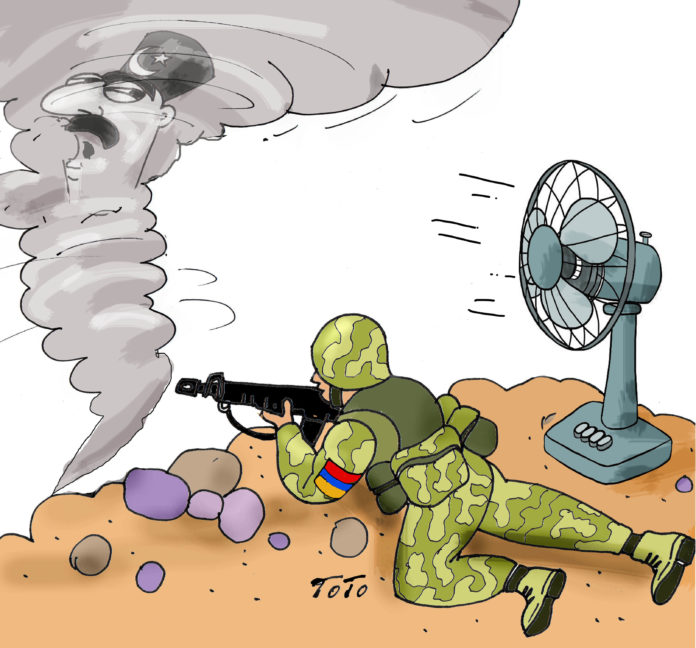While the coronavirus pandemic has stopped normal life, political activities are not similarly frozen; Saudi bombs continue to fall over the misery that is Yemen, military movements have been creating new realities in Libya and Israel is rushing to grab more territory in the West bank, before the anticipated departure of President Donald Trump.
Behind all these developments, Turkey plays a tacit role.
Even more close to home, the flare-up in the Caucasus, is taking place with Turkey’s encouragement if not full participation.
The specter of war has been looming over the Caucasus since the collapse of the Soviet Union, even after a ceasefire was signed in May 1994 between Armenia and Azerbaijan. However, the resumption of hostilities is no longer confined to the two parties; the intricate web of political interests and conflicts between those parties manipulates it. Therefore, to trace a spark that would conflagrate a war, one must analyze the interaction of the points in that web.
The former regime in Armenia was subservient to the Organization for Security and Cooperation in Europe (OSCE) message, always repeating the mantra of that group, that the fate of Nagorno Karabakh has no military solution. At the same time, Azeri President Ilham Aliyev would continue spewing bellicose rhetoric without any reprimands from the co-chairs of that body’s Minsk Group, tasked with brokering a peace deal in Karabakh.
The administration of Prime Minister Nikol Pashinyan has adopted a more aggressive tone and posture. Just recently, Mane Gevorgyan, the spokesperson of the prime minister, retorted to Aliyev’s war rhetoric that if conflict is supposed to be resolved by force, then Karabakh has already settled the issue.










